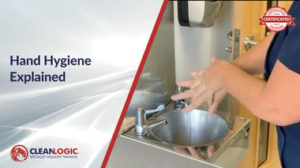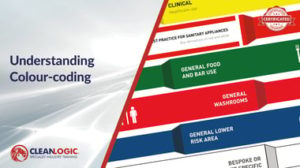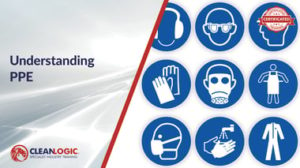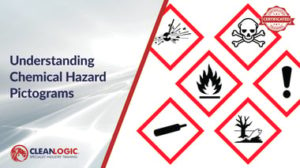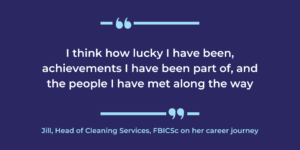Chemical Engineer - Cleaning Careers
A Chemical Engineer, aka 'Chemical Process Engineer' converts and develops raw materials into useful products. Let's take a further look!
Chemical Engineer careers: What's involved
Chemical Engineers can be found in a variety of trades/industries but most of these cross into cleaning. These include energy, food and drink, oil and gas, pharmaceuticals, plastics, toiletries, and water treatments.
Their work involves changing the chemical, biochemical and physical state of a substance and turning it into something different. Whilst this is being done, they take into consideration the cost and any health and safety issues.
How much money can you earn as a Chemical Engineer?
These LMI Job Trends give you a sneak peek of how much you could earn starting out for this career, and how much your salary could grow with experience.
Salary guide for Chemical Engineer jobs
Recent labour market information suggests that the average salary of a Chemical Engineer is £44,720 per annum.
On average you can earn between £30,000 – £80,000+ a year as Chemical Engineer in the UK.
Your starting salary can vary because of factors like level of experience, training, location or the size of the company. Your salary will increase over time as you build skills, knowledge and experience.
Cleaning and facility management career FAQs
In many cleaning operative roles, you do not require any formal qualifications to become a cleaning operative. Having a certain level or numeracy and language skills may help you get hired by employers. It’s useful to have GCSEs in grades 9-4 (A*-C) in English, maths and a science subject. Many employers in the cleaning industry will help you gain these qualifications if this is something you are interested in pursuing!
You might already have an academic qualification like a degree, or be thinking of doing one. Amelia did a theatre degree and is now very happy in the cleaning industry, so you can still shine in the world of cleaning if you do the qualifications you feel passionate about!
To progress your role more speedily, or, to gain insight into these fantastic roles, why not take a look at some of the great training offerings that are out there?
Some examples include:
- BICSc Licence to Practice Qualification
- Certificate in Cleaning and Support Services Skills
- Certificate in Cleaning Principles (RQF)
You can find out more with the British Institute of Cleaning Science.
You can also try out these amazing FREE certified courses to build your CV!
Assistant Technical Specialist Kelsey Hargreaves is a young person who has got far in the world of cleaning, hygiene and facility management. She shares her top reasons for getting into the world of cleaning after university, and her reasons might inspire you too:
- I wanted to help create safer environments
- I wanted to help give people opportunities
- I enjoyed working alongside hard working people
- I wanted a career in an industry that was trying to solve environmental issues
- I wanted a career where I could develop
- I wanted to work in an industry that was diverse and vibrant
- I wanted a career where I would be listened to
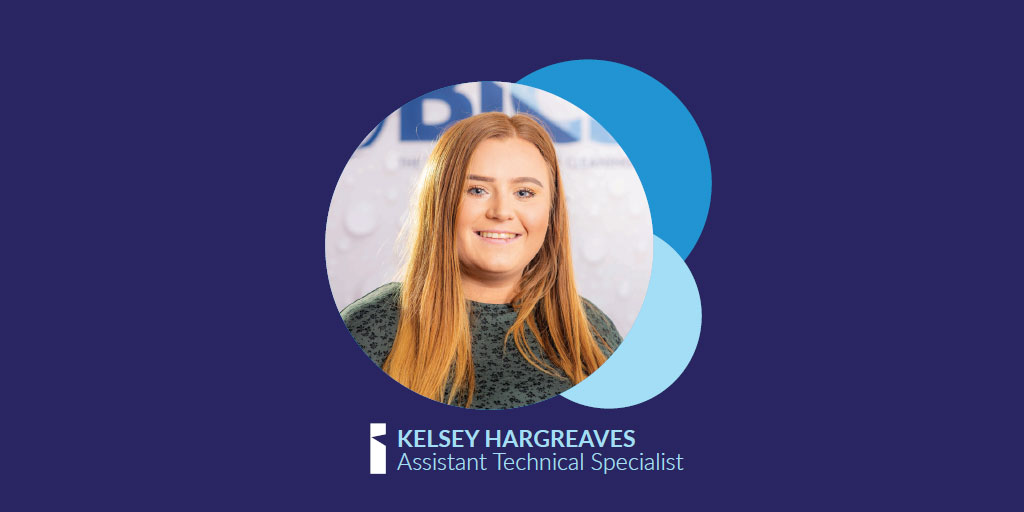
Domestic cleaning used to be called the ‘invisible industry’ but times are changing because it is such a huge market. It is now getting the benefit of more attention, better resources, and more support and development for your career.
Find out more…
Becoming a Chartered Practitioner in Environmental Cleaning involves one of two routes and is great recognition of your achievements in the industry as you grow in experience.
Find out more…
If you’re wondering just how big the UK cleaning industry is – and who can help you get ahead – then check out this megalist of organisations in the sector and how they can help you get ahead.
Find out more…
Skills you need to become a Chemical Engineer
Being a Chemical Engineer requires quite a few different skills, a mixture of analytical and practicable skills.
Useful skills to put in your CV:
- Communication: Is the ability to convey or share feelings/ideas effectively without any misinterpretation, misunderstandings, or misleading people.
- Problem-solving: Being able to recognise and identify a problem either before it occurs or being able to implement the best solutions afterwards.
- Teamwork: Be able to work well within a team and work together to achieve the same goal.
- IT skills: Within the role you may be asked to use several devises i.e., a tablet, phone, computer, laptop and their operating systems and software. It is about being able to operate these comfortably.
- Good attention to detail: You will need to be able to focus on all areas of the task or project.
- Methodical: Can follow step-by-step processes
- Creativity: Being able to use your imagination to create new ideas, or to see a task or problem in a different way.
- Work under pressure: Being able to deal with situations that can result on strains in your day-to-day work that may be beyond your control. You are able to deal with this pressure and remain good natured.
Top Skills-boosting Tips
Do some personal research into how the cleaning industry puts a big focus on safety, health and the environment.
They are all really important in the world of cleaning!
How Do You Get These Skills?
Vocational qualifications and work experience will help you build these skills over time.
What Qualifications & Training Do You Need For Chemical Engineer Careers?
There are three main pathways you could explore if you want to become a chemical engineer: apprenticeships, university, and working your way up.
Apprenticeships
The entry requirements for an apprenticeship are usually 4 or 5 GCSEs at grades 9 to 4 (A* to C) A levels or equivalent.
If you find that you will learn and gain more from a more hands on experience, an apprenticeship could be a good option. The universities below offer apprenticeships in Chemical Engineering BEng (Hons).
Explore the benefits of this kind of apprenticeship and how to apply for one here.
University
You will need a degree or postgraduate qualification in chemical engineering, process engineering or biochemical engineering.
Some universities offer a foundation year for students who may not have qualifications in Maths and Science allowing you to move onto the degree course after this has been completed.
If you have a degree relating to engineering, chemistry, or polymer science there may be the opportunity to do a postgraduate conversion, but this would require further research. For more information for entry requirements and where you can find courses for chemical engineering below.
Training
If you get there opportunity to start a career as an engineering technician, you may get the chance to do training alongside your current job to gain the qualifications to be an Chemical Engineer.
The Institution of Chemical Engineers offer more details and information around training and careers in chemical engineering. You can also sign up to their membership.
Who can help?
Many professional bodies also offer a range of training opportunities, including activities that count towards continuing professional development (CPD). Find out more below:
The British Institute of Cleaning Science (BICSc)
BICSc is the largest independent, professional, and educational body within the cleaning industry providing training and education, setting standards and procedures for cleaning. BICSc membership now stands at over 55,000 individual and corporate members in the UK and Internationally.
The Institute of Workplace and Facilities Management (IWFM)
The Institute of Workplace and Facilities Management (IWFM) is the body for workplace and facilities professionals. IWFM empower and enable workplace and facilities professionals to expand their potential and have rewarding, impactful careers. The IWFM was established in 2018. It builds on the proud heritage of 25 years of the British Institute of Facilities Management.
What Work Experience Do You Need For Chemical Engineer Jobs?
Within your studies for chemical engineering, it is likely that you will do a year placement where you will be able to gain industry knowledge and experience. If you’re struggling to find in person work experience, there are virtual courses that you can enrol in. They help you explore different paths into the industry and which training would work best for you.
Virtual Routes into STEM support students in year 9 or 10 or S3 OR S4 who are interested in pursuing a career in STEM (science, technology, engineering, and maths).
Click the link to their website that helps find placements for those looking for more experience.
What Does A Chemical Engineer Do?
You will be part of a vibrant and diverse industry that works tirelessly every day to help keep people in safe and hygienic environments! Your specific job requirements may change depending on what part of the industry you work in!
A chemical engineer mainly spends their time working inside a laboratory, in an office, or sometimes at a manufacturing plant.
In all parts of the industry you can expect to:
- You will be testing and developing new products
- Collect data allowing you to modify and improve existing products
- You will be using software to decide the best production methods
- Investigate and troubleshooting process problems
- Supervising operations
- Scale-up or scale-down processes
- Plan and execute new products from lab tests into products
- Researching new products and trailing them through to advertising
- Assessing safety and environmental issues
- Optimise productions but analysing the process and compiling debottleneck studies.
How To Find Chemical Engineer Jobs: Next Steps
STEM specific job sites include:
You can take a look at our database of local opportunities to see if there are any relevant jobs, work placements, or careers events and workshops to help you get started.
Get Into Cleaning Careers With Caring Employers
These employers and organisations are here to help. They care about your potential and desire to learn, not just your qualifications and experience. They may be able to offer traineeships, apprenticeships, graduate schemes, first jobs, careers advice, wellbeing support and much more.
Cleaning and Facility Management Career Tips & Opportunities
Careers in Cleaning - Your Stories
Cleaning and Facility Management Career Guides
View job descriptions with average UK salary, useful qualifications and a variety of routes into this career.
See All Our Caring Employers






































































YES! I Want More Free Careers Help...
So what are you waiting for? Grab your future.


